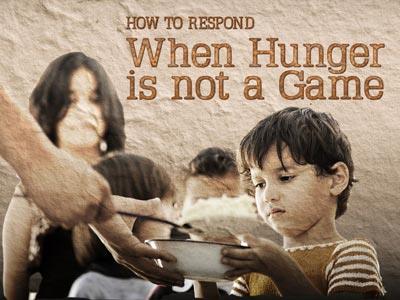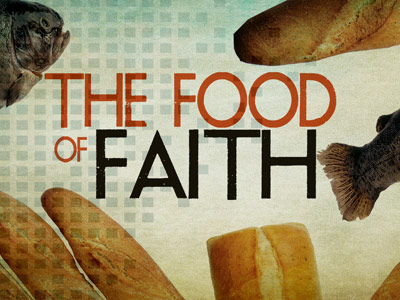-
Come Back Tomorrow Series
Contributed by W Pat Cunningham on Oct 25, 2009 (message contributor)
Summary: The problem of hunger in our world is mostly a matter of people like the synagogue official who would turn away the blind and lame from the healing power of Jesus.
October 26, 2009
Caritas in Veritate
There are many meanings to what St. Paul calls “living by the flesh,” and some tie in most wonderfully with today’s Gospel and the Pope’s latest encyclical. We have considered one over the past few weeks–the idea that human development is most importantly economic development. If we are truly to develop humanity, we must advance all the modalities of the human, including the spiritual and cultural development without which we are merely caged animals. Leaders who would impoverish man by ignoring his spiritual and cultural life, or downplaying it, are like the synagogue president who told the blind and the lame to “come back tomorrow,” for healing is not an allowed Saturday activity.
You can learn a lot by reading the New York Times. A few years ago, in the midst of my research on financial panics, I read an 1857 Times article on the effect of the recession then in progress. “Not to worry,” the writer seemed to say, “the main impact of unemployment seems to be on the Irish and Italians.” This week we read this: “The number of hungry people in the world rose to 1.02 billion this year, or nearly one in seven people, according to the United Nations Food and Agriculture Organization, despite a 12-year concentrated effort to cut the number.” Ironically, despite the anti-life bias of both the Times and the UNFAO, they acknowledge that what the Pope says in paragraph 27 of the encyclical is correct. There is enough food for the world’s population, and the technology is in place to continue growing more food, but 15% of the world is hungry because of unjust food distribution systems.
Sean Hannity notwithstanding, hunger is an injustice and all humans have a right to adequate nutrition. The Pope is spot-on here: “Hunger is not so much dependent on lack of material things as on shortage of social resources, the most important of which are institutional. What is missing, in other words, is a network of economic institutions capable of guaranteeing regular access to sufficient food and water for nutritional needs, and also capable of addressing the primary needs and necessities ensuing from genuine food crises, whether due to natural causes or political irresponsibility, nationally and internationally. The problem of food insecurity needs to be addressed within a long-term perspective, eliminating the structural causes that give rise to it and promoting the agricultural development of poorer countries. This can be done by investing in rural infrastructures, irrigation systems, transport, organization of markets, and in the development and dissemination of agricultural technology that can make the best use of the human, natural and socio-economic resources that are more readily available at the local level, while guaranteeing their sustainability over the long term as well.” But our secular institutions and their leaders, as always behind reality in mind and heart, continue to think we can solve food problems by eliminating people. Next week I will share with you thoughts during Dia de la muerte on the Right to Life as the Pope sees it.

 Sermon Central
Sermon Central



